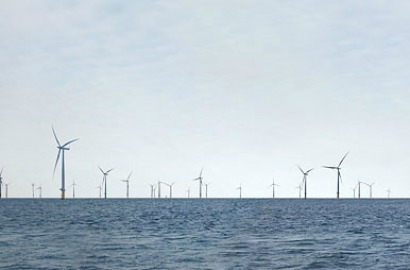
”We’re a number of energy companies who wish to be responsible for generating power that emits less CO2, and we’re working dedicatedly to optimise both technology and processes to reduce the cost of energy. But that requires massive investments. And investors like to have some certainty that they will be able to recover the money they invest. Therefore they need us to close the gap in the political framework conditions that arises after 2020,” commented Anders Eldrup, Dong Energy’s CEO until two days ago, when he was forced to step down after the company’s Board of Directors learnt that Anders Eldrup had approved some unusual terms of employment for a few employees in Dong Energy.
The letter was submitted by the world’s largest developer of offshore wind farms after the Commission presented its Energy Roadmap 2050 for long-term conversion of the European energy system. A strategy that underscores the unsustainable investment situation which is emerging due to the lack of an EU policy for development of renewable energy after 2020 and a CO2 allowance system that is falling apart.
”Without clear and unambiguous investment signals that encourage green investments, the EU risks being stuck with a CO2 intensive energy production for many years to come, which makes it impossible to meet the EU's ambition of a CO2 reduction of at least 80% by 2050,” added Eldrup.
Ditching gas and coal in favour of wind
Despite divesting 50 per cent of the German offshore wind Borkum Riffgrund 1 to the LEGO Group’s parent company, KIRKBI A/S, and the Oticon Foundation, via its investment company, William Demant Invest A/S for a total sum of DKK 4.7 billion, at the beginning of the month, Dong Energy remains fully committed to offshore wind development.
It recently announced plans to invest around DKK 10 billion a year on offshore wind projects over the next two or three years; a figure similar to what the company spent last year on offshore wind turbines. “We think that is around that level we will be working at in the coming years,” Eldrup told Bloomberg. The company plans to roll out 3 gigawatts of offshore wind by 2020.
Dong is focusing on offshore wind as it shys away from building any new combined-cycle gas turbine plants, which it considers are “not very profitable”. The company will also not invest in new coal-fired power plants as it seeks to cut by half its carbon-dioxide emissions from electricity and heat generation compared with 2006 levels by 2020. The company also reveals that it plans to convert “about half” of its existing coal stations to use biomass.
Dong has announced that Eldrup will be stepping down as CEO and replaced by Finance Director, Carsten Krogsgaard Thomsen, until a new chief executive is found, after the Board of Directors became concerned about excessively generous contract terms that Eldrup, Dong’s CEO of 11 years, had granted to certain employees.
For additional information:

